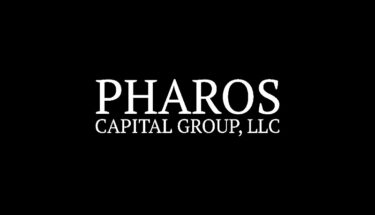The SEC specifically highlighted registered investment advisers’ (RIAs) fees and expenses as an examination focus in its 2023 and 2024 Examination Priorities Report. The Division of Examinations will review the calculation and allocation of fees and expenses, excessive fees, and alternative ways RIA’s may try to maximize revenue — just to name a few.
The recent private fund adviser reforms and the Restricted Activities Rule, in particular, add additional fee and expense concerns. Fund managers need to sharpen their focus on how they handle fees and expenses, otherwise, a misstep could result in regulatory issues and damage to the firm’s reputation.
Leading fund advisers are already relying on industry-specific software to support their best practices. Insight, the AI-powered platform powering the private fund lifecycle, enables advisers to keep close track of fee and expense-related provisions, as well as create workflows and a log of completed compliance-related tasks for mock and real SEC exams.
Current fee and expense management challenges
If you’re general counsel (GC) or the chief compliance officer (CCO) at a private fund, you’re already aware of the challenges that arise when allocating expenses to and across funds. Designing allocation policies often requires manually reviewing fund documents, side letters, and compendia. Ensuring fees have been properly calculated, charged to the management company or funds, and allocated among funds or investment vehicles necessitates combing through invoices and ledger reports, aided by allocation policies and references to underlying fund documents.
GCs, CCOs, and their teams must also be mindful of side letter and LPA provisions that affect fee and expense allocations. Special side letter terms may necessitate that a fund manager adjust their typical approach to charging expenses. In some cases, SEC rules might require making disclosures in marketing materials or financial statements, prior to, concurrent with, or after charging and allocating certain fees and expenses.
With the new SEC private fund adviser rules coming into play soon, private fund managers need to be confident in their ability to track fee and expense provisions in their fund documentation and side letters, allocate fees and expenses appropriately, and demonstrate compliance to the SEC.
Restricted Activities Rule creates new concerns
The Restricted Activities Rule limits how all private fund advisers can charge and allocate certain types of expenses. According to the rule, private fund advisers may not engage in certain activities that are contrary to the public interest and the protection of investors unless they provide certain disclosures to investors and, in some cases, receive investor consent.
Under the new rule, restricted activities include, but are not limited to:
- Charging or allocating to the private fund fees or expenses associated with an investigation of the adviser without disclosure and consent from fund investors.
- Charging or allocating fees or expenses related to an investigation that results or has resulted in a court or governmental authority imposing a sanction for a violation of the Advisers Act or the rules thereunder.
- Charging or allocating to the private fund regulatory, examination, or compliance fees or expenses of the adviser, unless such fees and expenses are disclosed to investors.
- Charging or allocating fees or expenses related to a portfolio investment on a non-pro rata basis, unless the allocation approach is fair and equitable and the adviser distributes advance written notice of the non-pro rata charge and a description of how the allocation approach is fair and equitable under the circumstances.
- Reducing the amount of an adviser clawback by the amount of certain taxes, unless the adviser discloses the pre-tax and post-tax amount of the clawback to investors.
- Borrowing or receiving an extension of credit from a private fund client without disclosure to, and consent from, fund investors.
Private fund managers’ reactions to this rule vary. Some don’t see the Restricted Activities Rule as imposing anything new if their fund doesn’t engage in any of these activities. For many smaller and newer fund advisers however, implementing technology and best practices to carefully manage new fee and expense-related tasks might feel daunting.
Audit and Quarterly Statement Rules create additional processes
Two other recent SEC rules that could impact firms’ fee and expense procedures are the Quarterly Statement Rule and the Private Fund Audit Rule.
Registered private fund advisers will need to distribute quarterly statements to investors with additional information about fees and expenses paid by the fund. The quarterly statements must list fees and expenses as separate line items by total dollar amount per specific category, and advisers can’t exclude de minimis expenses, group smaller expenses into broad categories, or label expenses as miscellaneous.
Under the Private Fund Audit Rule, registered private fund advisers must obtain an annual financial statement audit that meets the requirements of the audit provision in the Custody Rule for each private fund. The adviser must deliver the audited financial statements to investors annually within 120 days of the private fund’s fiscal year-end and promptly after liquidation.
Insight helps firms manage fee and expense compliance
No matter their initial reactions, all fund managers can benefit from using Insight to maintain visibility into fees and expense provisions and act on them appropriately.
With Insight, private fund managers can:
- Reference precedent: Review historical LPAs and side letters when crafting new language for future funds.
- Tag contract provisions: Tag and label fee and expense provisions across all funds.
- Review fee and expense provisions: Use the tagging and search features to consolidate and review relevant LPA and side letter provisions.
- Conduct compliance checks: Create quarterly sign-off tasks to confirm that if any restricted activity took place, the fund followed the designated workflow for providing disclosures or receiving consent, and then marked actions as complete.
- Prepare a response to the SEC: Export fund documentation and data to prove side letter compliance during a real or mock SEC audit.
Insight may also help advisers lessen expenses by reducing manual work and improving collaboration between managers and their outside counsel. Fund managers can leverage Insight to answer everyday fee and expense questions and craft compliance policies. When it comes time to respond to a real or mock SEC exam, advisers can export fund documentation and data to support side letter compliance with a few clicks rather than wait on a law firm to gather information at the eleventh hour.
Key resources
Press Release, SEC Enhances the Regulation of Private Fund Advisers
The Final Rule
SEC Fact Sheet
2023 Examination Priorities Report
2024 Examination Priorities Report
Stay tuned for more timely updates
Stay tuned for more in-depth information on the new SEC rules and how Insight, Ontra’s AI platform powering the private fund lifecycle, can help private fund managers comply with investor and regulatory obligations.


